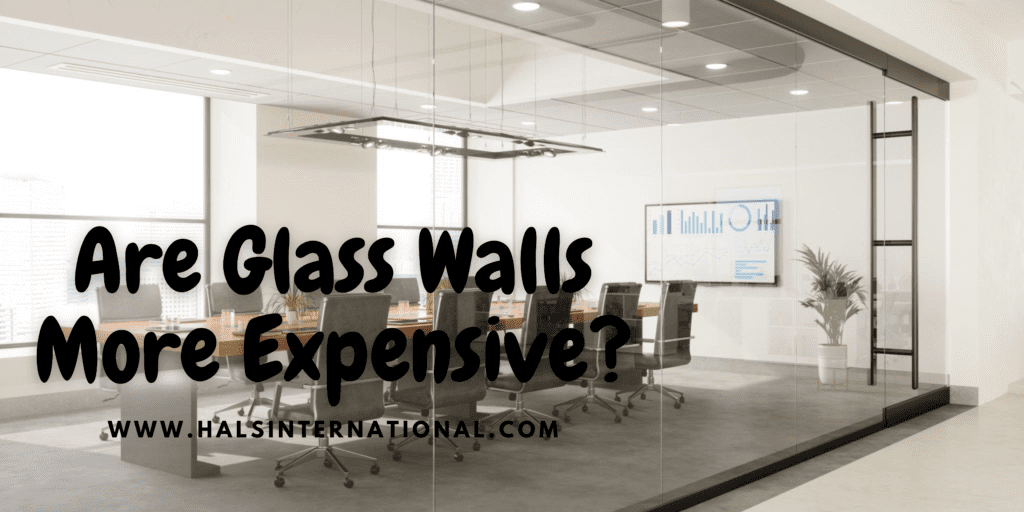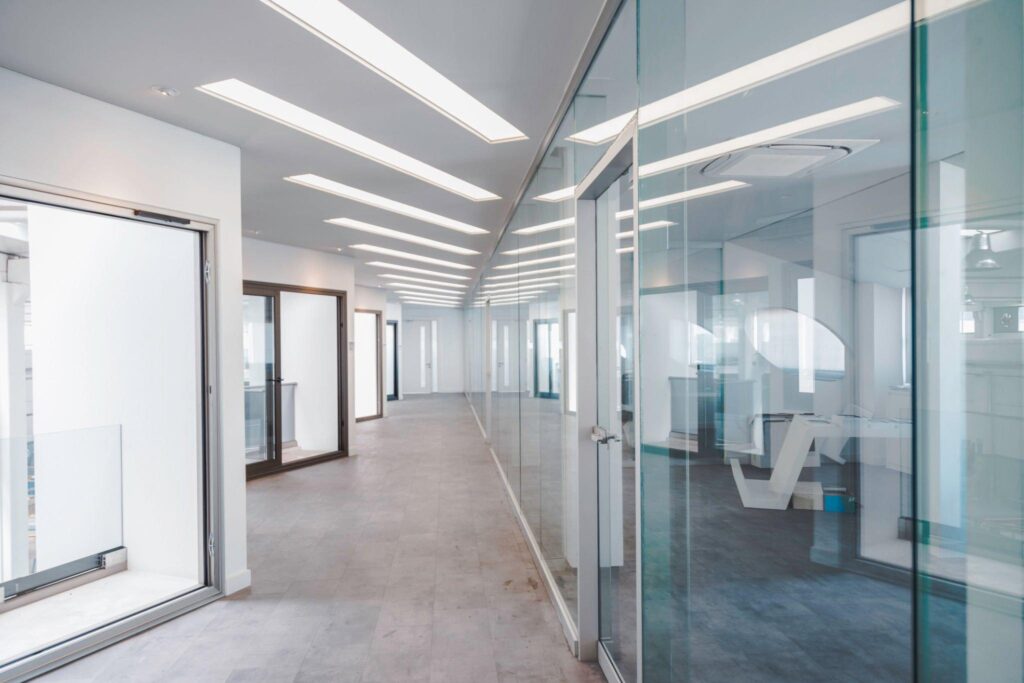
Table of Contents
Glass walls have become increasingly popular in modern office spaces and commercial buildings. They offer numerous benefits, such as enhancing natural light, creating an open and collaborative environment, and adding a touch of elegance to the space. However, one common question that arises is whether glass walls are more expensive compared to traditional solid walls or other alternatives. In this article, we will explore the cost considerations associated with glass walls and assess their cost-effectiveness in the long run.
When it comes to designing office spaces, aesthetics, functionality, and cost are important factors to consider. Glass walls offer a unique combination of transparency, elegance, and practicality, making them a sought-after choice for many businesses. However, it is crucial to evaluate the cost implications of using glass walls before making a decision.
The Cost Of Glass Walls
Factors Affecting Cost
Several factors influence the overall cost of installing glass walls. These factors include the type of glass used, the size of the wall, the complexity of the installation process, and any additional customization or features required.
Material Costs
The cost of the glass itself can vary significantly depending on the quality and type of glass chosen. Options range from standard single-pane glass to more advanced options like double-glazed or laminated glass, which offer enhanced soundproofing and insulation properties. Each type of glass comes with a different price tag, and it is essential to select the one that meets both aesthetic and functional requirements.
Installation Costs
Installing glass walls requires expertise and precision. The complexity of the installation process, including the need for additional structural support or modifications, can impact the overall cost. Hiring professionals experienced in glass wall installations ensures a seamless and secure installation, but it may come at a higher price.
Maintenance Costs
Glass walls require regular cleaning and maintenance to preserve their appearance and functionality. While maintenance costs are generally reasonable, it is important to consider them when assessing the long-term expenses associated with glass walls.
Check out our high quality glass products:
Benefits Of Glass Walls
Natural Light And Visibility
One of the significant advantages of glass walls is their ability to allow natural light to permeate the space. This creates a brighter and more inviting environment, potentially reducing the need for artificial lighting and lowering energy costs. Additionally, glass walls provide visibility, allowing employees to feel connected and fostering a sense of openness and transparency.
Enhanced Aesthetics
Glass walls add a touch of sophistication and elegance to any space. They can create a modern and stylish atmosphere that reflects the company’s brand and culture. The transparency of glass walls also gives the illusion of a larger space, making it ideal for smaller offices or areas where openness is desired.
Sound Insulation
Contrary to common belief, glass walls can provide excellent sound insulation when designed and installed correctly. Modern glass wall systems come with soundproofing features that minimize noise transmission, ensuring a quiet and productive work environment.
Flexibility and Customization
Glass walls offer versatility in terms of customization and reconfiguration. They can be easily modified or relocated, allowing for future expansion or changes in the layout. This flexibility reduces the long-term costs associated with structural renovations and offers the ability to adapt to evolving business needs.
Contact Us For Unique Products And Services
Cost-Effectiveness Of Glass Walls
Long-Term Savings
While glass walls may have a higher upfront cost compared to traditional solid walls, they can provide long-term savings. The increased natural light reduces the need for artificial lighting during the day, resulting in lower energy consumption and decreased utility bills over time. Additionally, the transparency and open feel of glass walls can boost employee morale and productivity, potentially leading to improved business outcomes.
Increased Productivity
Glass walls contribute to a more collaborative and transparent work environment. The open design facilitates communication, idea sharing, and teamwork among employees. Studies have shown that a well-designed office space positively impacts employee engagement and productivity, which can translate into financial gains for the company.
Energy Efficiency
Modern glass wall systems are designed to be energy-efficient. They incorporate features such as thermal breaks and low-emissivity coatings that help regulate temperature and reduce heat transfer. This can lead to lower heating and cooling costs throughout the year, making glass walls a sustainable and cost-effective choice.

Alternative Options And Their Costs
While glass walls offer numerous advantages, it is essential to consider alternative options and their costs before making a decision. Some alternatives to glass walls include:
Solid Walls
Solid walls provide maximum privacy and sound insulation but can create a closed and claustrophobic atmosphere. The cost of solid walls depends on the materials used, such as drywall or brick, and any additional structural modifications required.
Drywall Partitions
Drywall partitions offer a balance between privacy and openness. They are cost-effective and relatively easy to install. However, they lack the transparency and aesthetic appeal of glass walls.
Cubicles
Cubicles provide individual workstations and privacy, but they can create a segmented and isolated environment. The cost of cubicles varies based on the design, materials, and customization options chosen.
Modular Walls
Modular walls combine the benefits of flexibility and privacy. They are pre-fabricated and can be easily assembled or disassembled, making them suitable for spaces that require frequent layout changes. The cost of modular walls depends on the quality of materials and the level of customization desired.
Conclusion
Glass walls offer a compelling combination of aesthetics, functionality, and cost-effectiveness. While they may have a higher upfront cost compared to some alternatives, the long-term benefits outweigh the initial investment. The enhanced natural light, collaborative work environment, and energy efficiency make glass walls a wise choice for modern office spaces. By carefully considering the cost factors, long-term savings, and the unique advantages they offer, businesses can make an informed decision about integrating glass walls into their workspace. For more informational guides like these you can visit our website.
Frequently Asked Questions:
Glass walls are made from durable materials designed to withstand everyday use and potential impacts. They undergo rigorous testing to ensure their strength and safety. However, it is important to handle and maintain them properly to minimize the risk of breakage.
Yes, modern glass wall systems can be soundproofed to a significant extent. They incorporate specialized glass and insulation materials that minimize noise transmission, providing a quieter and more productive work environment.
Glass walls can be beneficial for various businesses, including offices, retail stores, restaurants, and more. However, the suitability may vary depending on specific needs and preferences. Consulting with a professional and assessing individual requirements can help determine if glass walls are the right choice.
Glass walls promote sustainability by maximizing the use of natural light, reducing energy consumption, and improving indoor air quality. The energy-efficient features of modern glass wall systems help minimize the environmental impact and contribute to a greener workspace.
Yes, glass walls can be customized for privacy using various options such as frosted or tinted glass, blinds, or curtains. These solutions allow for privacy when needed while still maintaining the benefits of transparency and openness.
